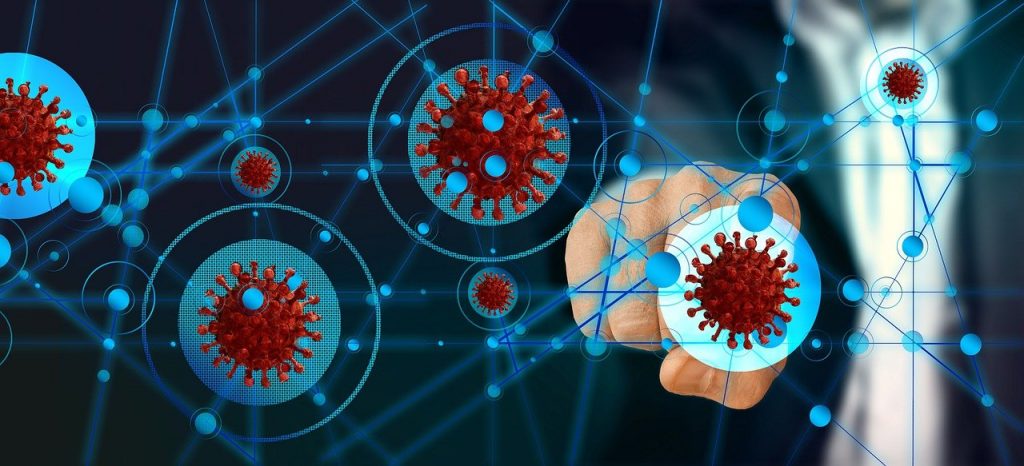The global Covid-19 pandemic has taught us how fragile life can be and how quickly things can change overnight. Despite this, it has also taught us the importance of technology. Whether it’s the speed at which a vaccine has been created or the ability to take a rapid test, technology has played a pivotal role throughout. However, Artificial Intelligence is still a form of technology that is in its infancy but it has been playing a part in the detection of Covid-19.
The Global Effort
Pandemics are nothing new to mankind. They have caused us problems over the centuries but humans have always prevailed. However, this pandemic has come at a time where we have something else in our arsenal – technology and more specifically, Artificial Intelligence.
The coronavirus fight has been taken on by experts and researchers from around the world in order to combat the virus. This has meant that powerful advances in artificial intelligence have been put to use throughout the pandemic and now, many projects are using it to help contain covid-19 and its impact.
Artificial intelligence was first used at the beginning of the pandemic and before the virus had even left China. Using machine learning and big data, it was noticed that a number of cases of pneumonia had been identified in Wuhan, China. The company carrying out the work, BlueDot had already played its part in predicting the Zika outbreak in 2016, six months before it happened.
However, the technology is based around natural language processing and machine learning. Therefore, since the beginning of the pandemic, the technology has been used by selecting data from the WHO and other sources such as reports and online articles from healthcare specialists. Furthermore, information relating to airline tickets and climate change is also used, and all of this helps to paint a clear picture of the movement of the virus.
When it comes to predicting the outbreak in China, two sources of data were vital and this was articles that had reported almost 30 cases of pneumonia in a wet market that sold seafood and live animals in Wuhan. The other data that was used was that of the movement of those who could be infected. This made it possible to anticipate the spread but also provide a prior warning of what was coming. All of this was driven by artificial intelligence.
Artificial Intelligence is Rapid
In fact, artificial intelligence is 60 times faster than humans and that has proven critical throughout the pandemic. Through the use of deep learning, doctors are now able to diagnose disease through the analysis of images. An algorithm has been developed by the research Institute Dama Academy and this can identify new cases of Covid-19 in 20 seconds with an accuracy of 96% and all of this is based on CT images. This uses machine learning to use data from over 5,000 confirmed cases and it is faster than humans at detecting the disease.
Rapid diagnosis is crucial in detecting Covid-19 but also in ensuring that the disease is spotted, diagnosed and then the patient not only treated but isolated to prevent further spread. Furthermore, artificial intelligence is also helping to identify the behaviour of the virus and as new variants appear in new parts of the world, it helps to inform authorities but also provide an idea of how it is spreading. This is particularly important in those variants that might prove more deadly or might evade vaccines. This can help countries to close their borders before new variants reach their shores.
It’s About Finding a Common Solution
Covid-19 is not a disease that is being fought by a few countries because it is a global problem. Any solution that has been developed by a single country becomes a solution on a global scale.
While modern medicine will hopefully come to our aid it is imperative that we take a cautious approach to how we live. Therefore, artificial intelligence is providing a highly effective solution that is helping scientists and authorities track and map the movement of the virus. While medicine will stop the virus in its tracks, technology can help us to stay one step ahead of it and that is the real difference.
Collaboration is key to ensuring we give ourselves the best chance of keeping safe during the pandemic. However, artificial intelligence has proven yet again just how influential technology can be. When it gives us the scope to work in real-time, it really is a tool that has become an integral part in the fight against this disease.

